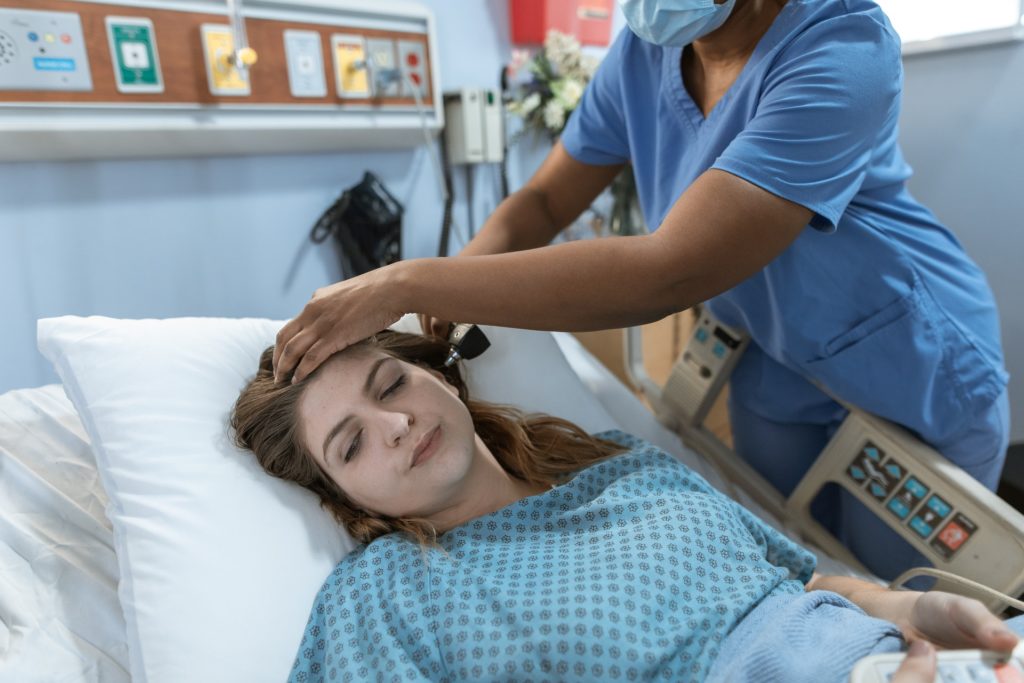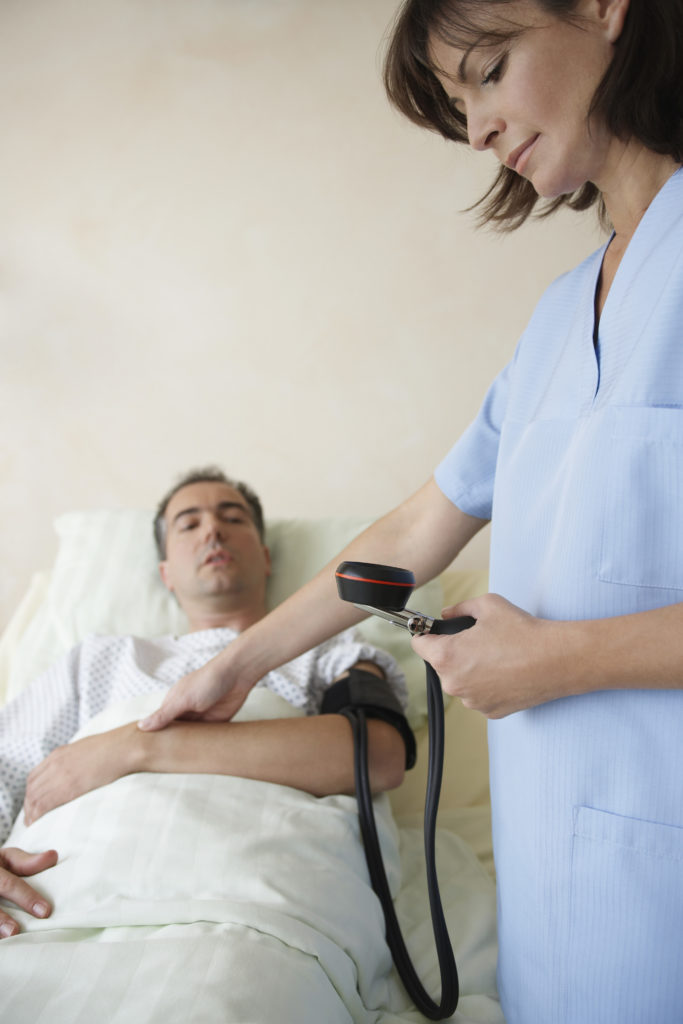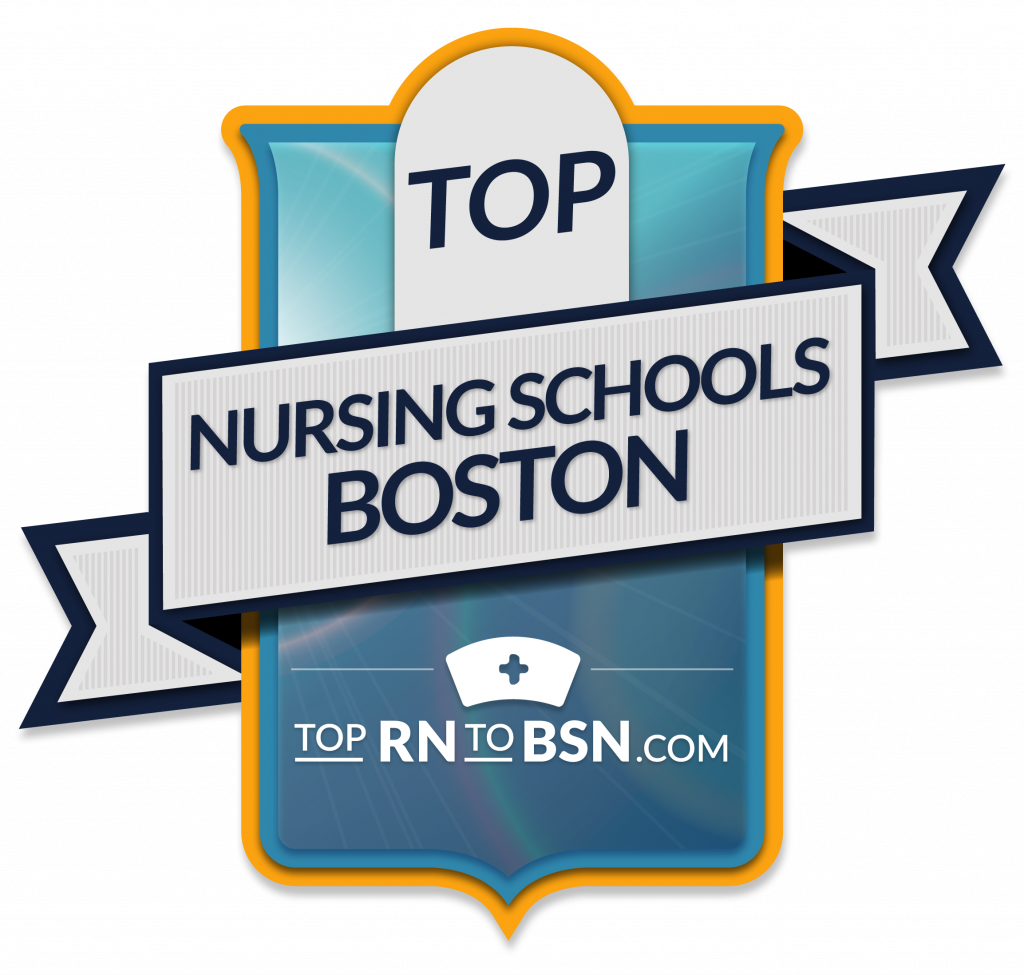
Best Boston Nursing Schools
The best nursing schools in Boston have programs for Massachusetts nurses to continue their education and also programs for new nurses. If you are looking for a quality nursing school in Boston, Mass as a nursing student, there is no shortage of quality choices in Boston, and its nearby communities.
To become a Registered Nurse (RN) in Boston, a prospective Registered Nurse licensee candidate must enroll and complete a Massachusetts Board of Nursing-approved program. There are a variety of Boston nursing schools that offer nursing programs at the associate, diploma, bachelor’s, master’s, and post-master degree levels. Once a student completes an approved nursing degree program from one of the Boston nursing schools, they qualify to sit for the national NCLEX-RN exam.
A Registered Nurse (RN) license candidate may attend and successfully complete a nursing program from an accredited school located in another state. However, the nursing degree program must have Board of Nursing approval from the state. Furthermore, a Registered Nurse candidate may not attend a nursing degree program that is NOT approved by the Massachusetts Board of Nursing.

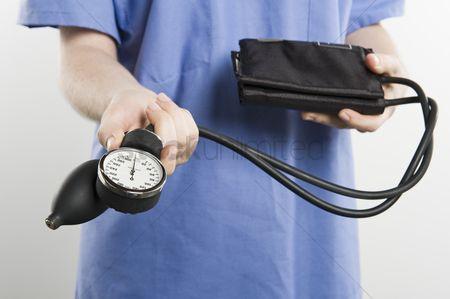

How We Ranked the Best Nursing Schools in Boston
Ranking nursing schools in Boston isn’t an easy job. The city has more colleges per capita than any other place in America. Still, TopRNtoBSN editors focused on accredited, reputable institutions with a history of getting their graduates into rewarding careers. Then, we rank programs according to cost, potential salary, reputation, and comprehensiveness.
1. Northeastern University
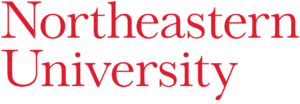
The Bouve College of Health Sciences (BCHS) at Northeastern University is one of the best nursing programs in Boston. Both the CCNE and the Mass Board of Nursing accredit the university’s nursing programs. In addition, NEU is an accredited Nursing Education provider by the American Nurses Credentialing Center.
The nursing school offers a variety of nursing degrees at the bachelor’s (4 programs), master’s (10 programs), PhD, and DNP (3 programs) levels, plus several continuing education coursework to meet licensing requirements. The Master of Science (MS) in Nursing programs include:
- Direct Entry MSN Program
- Adult-Gerontology Acute Care NP
- Adult-Gerontology Primary Care NP
- Family Nurse Practitioner (FNP)
- Neonatal Nurse Practitioner
- Pediatric Nurse Practitioner
- Psychiatric Mental Health NP (PMHNP)
- Online Nurse Practitioner (NP)
Northeastern University started as a research higher learning institution in 1898. This multiple-campus school has an enrollment of approximately 18,100 students, of which about 3,700 attend NEU’s nursing school. The Bouve College was established by a merger of two schools in 1992. And today it has a worldwide alumnus that exceeds 39,000.
More: Northeastern University Bouve College of Health Sciences
2. Boston College
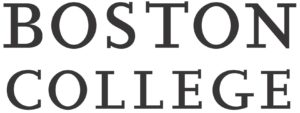
The Connell School of Nursing (CSON) at Boston College is among the top nursing schools in Boston. Its diversified nursing programs begin at the pre-license status and conclude at the doctoral level, with continuing education classes also available. About 1/3 of BC’s nursing students choose to study internationally. In fact, BC’s graduate nursing program is one of the best in the Commonwealth of Massachusetts. And it is the first Jesuit higher learning institution to offer a doctoral-level nursing program. Programs include:
- Bachelor of Science in Nursing, traditional BSN program
- 3 pathways to the Advanced Generalist Master of Science in Nursing (AG MSN)
- Doctor of Nursing Practice Program (DNP)
- DNP in Nurse Anesthesia
- PhD Program
Boston College is a private higher education institution founded in 1863. The school is a leader in both scientific inquiry and liberal arts education. A school of nursing was established in 1947 and aligns with the overall Jesuit ideals of Boston College. The average NCLEX exam graduate pass rate for the past five years was 99%. Boston College is home to about 14,100 students, of which about 750 attend programs at the college’s nursing school.
More: Boston College nursing programs
3. University of Massachusetts Boston
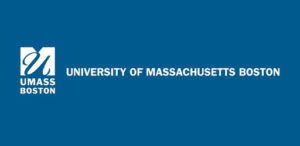
The College of Nursing & Health Sciences at the University of Massachusetts Boston offers several undergraduate, graduate, and professional development nursing degree academics. As one of the top nursing schools in Boston, UMass Boston offers several BSN programs. And the school has a variety of DNP and PhD nursing programs from its Boston campus. Several programs in the nursing department offer nursing students accelerated delivered coursework both on-campus and online through the university’s distance learning platform.
- Traditional BSN
- Accelerated Bachelor of Science in Nursing
- RN-BS Bachelor of Science
- MSN with concentrations in Adult-Gerontological Nurse Practitioner or Family Nurse Practitioner
- Doctor of Nursing Practice (DNP) with a BS to DNP and an MS to DNP
- PhD or Doctor of Philosophy in Nursing
UMass Boston is a state-funded higher learning institution established in 1852. The college of Nursing & Health Sciences opened in 1965 and has accreditation from the state’s Nursing Board and the CCNE organization. Additionally, the University of Massachusetts Boston holds the distinction as one of the top three most diverse student enrollments in the nation.
More: University of Massachusetts Boston College of Nursing & Health Sciences (UMass Boston)
4. Massachusetts College of Pharmacy & Health Sciences

The Massachusetts College of Pharmacy & Health Sciences (MCPHS) offers a variety of traditional, online, hybrid, and accelerated nursing degree programs at many levels. The school offers several baccalaureate-level degree programs for nursing students, RN to BSN online, and a BSN for non-nursing students with a bachelor’s degree in an unrelated field. Additionally, MCPHS offers master’s level nursing programs for family nurse practitioners and psychiatric mental health nurse practitioners that are also available online.
The College of Pharmacy and Health Sciences in Massachusetts is a higher education institution dedicated to health-related education and is among the top nursing schools in Boston and the surrounding areas. MCPHS University, founded in 1823, operates several satellite facilities in Manchester, NH, and Worcester, MA. The student enrollment for MCPHS University is approximately 7,050 students.
More: Massachusetts College of Pharmacy & Health Sciences (MCPHS nursing program)
5. Regis College

The Young School of Nursing at Regis College is one of the best nursing schools in Boston and its neighboring communities. It is well-known for its excellence in educating nurses. The School of Nursing at Regis prepares students for a nursing career at many levels. Educational degrees in nursing are available on campus and through the college’s distance learning platform. Nursing students enrolled in the accelerated BSN program can finish their degrees and begin their careers in only three years. Additionally, the school collaborates with Lawrence Memorial Hospital School of Nursing to offer an ADN or associate degree program.
BSN Programs
- Accelerated 16 month BS in Nursing for Non-Nurse College Graduates
- Online 24 month BS in Nursing for Non-Nurse College Graduates
Master’s Programs
- Direct Entry MSN Master’s in Nursing
- RN to MS-Upward Mobility
- MS in Nursing
- 100% Online MS in Nursing
- RN to MS in Nursing Bridge Program (for RNs with non-nursing Bachelor’s)
- Post-Master’s Certificate in Nursing
- 100% Online Post Master’s Certificate in Nursing
Doctoral Programs
- Doctor of Nursing Practice (DNP) (Post-MS Option)
- 100% Online Doctor of Nursing Practice (DNP) (Post-MS Option)
- Doctor of Nursing Practice (DNP) (Post-BS Option)
- 100% Online Doctor of Nursing Practice (DNP) (Post-BS Option)
Regis College started as an all-women’s school in 1927 to offer a liberal arts education. But, it became coeducational 80 years later, in 2007, being the last of all Catholic women’s schools to become coeducational. The college’s campus is about 15 miles from Boston and is home to about 2,000 students. Regis College provides cross-registration opportunities with local schools like WPI, Babson, Brandeis, and Bentley College.
More: Regis College
6. Simmons University

Simmons University offers a variety of nursing degrees to students in the Boston area. The School of Nursing at Simmons includes nationally recognized and acclaimed faculty. Furthermore, nursing degree programs offered by Simmons University have accreditation from the CCNE. Simmons’ first-time pass rate for the NCLEX-RN is 97%, which is significantly higher than the national average pass rate for first-time NCLEX-RN test-takers, 86%, or the Massachusetts average of 90%.
The university operates as an all-women’s school on the bachelor’s level and is coeducational at the graduate level. Simmons University began educating students in 1899 and now serves around 4,900 undergraduate and graduate degree students. Simmons University is a member school of the College of Fenway, including the College of Pharmacy, the College of Art & Design, and Emmanuel College, among others.
More: Simmons University
7. University of Massachusetts Lowell
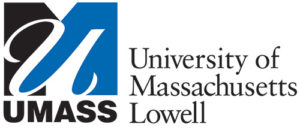
The Solomont School of Nursing at the University of Massachusetts Lowell serves as the fourth-largest city in the state. Lowell is less than 30 minutes from downtown Boston. It offers a BSN plus several graduate programs including two fast-tracked accelerated programs. Furthermore, UMass Lowell offers a Doctor of Philosophy in Nursing with a health promotion focus. Or doctoral students can earn a Doctor of Nursing Practice degree with either an Adult-Gerontology Primary Care Nurse Practitioner focus or a Family Nurse Practitioner path. Additionally, all nursing degree programs offered by UMass Lowell’s School of Nursing have CCNE accreditation.
The University of Massachusetts Lowell is one of five member schools comprising the commonwealth’s university system. The system was established by the merger of several higher learning institutions in 1894. UMass Lowell holds the distinction of being the second largest of all universities in Massachusetts with over 18,000 students.
More: University of Massachusetts Lowell nursing program
8. Salem State University

Salem State University’s College of Health & Human Services is among Boston’s best nursing schools and surrounding communities. SSU’s nursing programs have approval from the Massachusetts Board of Registration for Nursing and accreditation from the CCNE. Among the quality nursing programs Salem State University offers are baccalaureate degree options for BSN, LPN to BSN, RN to BSN, and an accelerated BSN for second-degree candidates. Additionally, the university offers graduate nursing degree programs in MSN (with several specialties) and a certificate for nurse educators.
The university started as a teacher’s training normal school in 1854 by famed educator Horace Mann, a US House of Representatives member. The university’s six nearby campuses in the port city of Salem, about a half-hour north of Boston, is home to approximately 6,050 students. Salem State University partners with other international higher learning institutions in Mexico, Poland, Italy, China, and Germany.
More: Salem State University
9. Endicott College
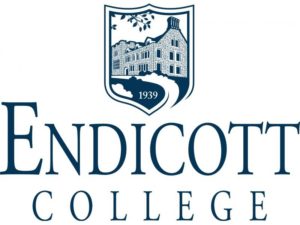
Endicott College’s School of Nursing offers a variety of some of the best nursing schools in Boston, with its Bachelor of Science in Nursing (BSN), accredited by ACEN. The nursing degree programs offer diversified clinical experiences and internships with partners and clinical affiliates in Boston and surrounding communities. BSN degree programs can seamlessly transition to a master’s nursing program saving one year of tuition and study time.
Endicott College is a private school that started as a junior college for women in 1939. Its campus is in a suburb of Boston, Beverly, and serves more than 5,400 undergraduate and graduate students. Additionally, Endicott is named to honor the first and longest-serving of the colony’s governors and an early administrator of Harvard University.
More: Endicott College
10. MGH Institute of Health Professions
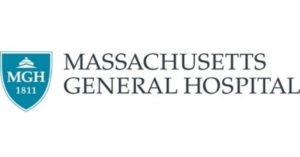
Massachusetts General Hospital Institute of Health Professions offers a variety of CCNE-accredited and Massachusetts Board of Registration in Nursing (BORN) approved nursing degree programs at various levels. MGH offers an accelerated BSN program that students can finish in only 16 months. This program is for non-nurses with a baccalaureate degree in an unrelated field. Students have priority clinical rotations at the famed MGH and other preeminent healthcare facilities in the Boston area.
MGH (Mass General Hospital) Institute of Health Professions was once the Mass. General Hospital nursing school. It dissolved upon the creation of the MGH Institute of Health Professions in 1977. Located at the Charlestown Navy Yard, the MGH Institute of Health Professions serves more than 1,450 students. Highlight -MGH Institute of Health Professions offers students cutting-edge simulation labs, plus pro-bono rehab centers for local residents.
More: Mass General Hospital Institute of Health Professions
11. Curry College
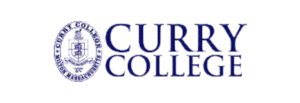
Curry College’s School of Nursing started in 1977 when the Boston Children’s Hospital diploma program merged education resources with Curry College. Among the nursing programs offered by Curry College, one of the best nursing schools in Boston and surrounding suburbs, is an RN to BSN, a traditional BSN degree, an accelerated BSN (for those with unrelated baccalaureate degrees), an MSN, and a Perioperative 101 certificate. All of Curry College’s nursing degree programs have accreditation from the CCNE.
Curry College was established in 1879 as a school of expression and elocution by Boston University alumni Anna Bright and her husband. The school’s campus in the affluent Boston suburb of Milton is only a dozen miles from downtown Boston and serves more than 4,650 students. Curry College’s first chancellor was another BU graduate and famed inventor Alexander Graham Bell.
More: Curry College’s School of Nursing
12. Bunker Hill Community College
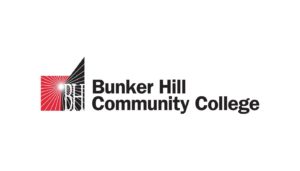
Bunker Hill Community College’s Nurse Education Department (BHCC) offers an Associate Degree in Nursing (ADN) program. The college is among the best nursing schools in Boston. The RN degree programs are in traditional on-campus day classes or as a hybrid delivered program. The hybrid program includes 50% online lectures in addition to the traditional class schedules and clinical rotations. Additionally, the hybrid nursing RN program is on the college’s Charlestown campus.
BHCC opened in 1973 and operates multiple campuses throughout the greater Boston Metropolitan area. With more than 13,150 students, it is the largest of all the state’s community colleges. The original campus of BHCC was in the Charlestown neighborhood, last used as a site for a prison.
More: Bunker Hill Community College
13. Emmanuel College
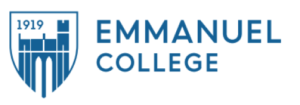
Emmanuel College is one of the oldest and best nursing schools in Boston. The college offers a Bachelor of Science in Nursing degree (BSN) program, an RN to BSN online degree program, and a Master of Science in Nursing (MSN) degree program from its Fenway area campus in the Back Bay section of Boston. These nursing degree programs have accreditation from the Commission on Collegiate Nursing Education.
- Online RN to BSN
- MSN with Nursing Education and Nursing Administration tracks
- Graduate Certificates in Nursing Education or Nursing Administration
The college started by the Sisters of Notre Dame de Namur in 1919. It is a member school comprising the Colleges of Fenway consortium. More than 2,450 students attend classes offered by the college. So, it holds the distinction of being the first Catholic higher learning institution in New England that was an all-women’s school.
More: Emmanuel College
14. Roxbury Community College

Roxbury Community College is one of the best nursing schools in Boston for an Associate of Science in Nursing (ASN). Students who graduate from the ASN are prepared to sit for the NCLEX exam for registered nursing. Additionally, individuals enrolled in a nursing program at RCC must devote 4 to 5 days weekly to classes, clinical rotations, or labs. RCC is affiliated with many healthcare facilities in and around Boston to offer students diverse internship and clinical rotation opportunities.
This two-year college was established in the Roxbury section of Boston in 1973. RCC serves more than 2,250 students as a space-grant institution of higher learning and offers a bachelor’s transition program to the nearby school Eastern Nazarene College. Roxbury Community College offers associate-level degrees and certificate programs in the arts and sciences.
More: Roxbury Community College
15. Northern Essex Community College

Northern Essex Community College offers an AS in Nursing that prepares graduates to sit for the national NCLEX-RN exam. Additionally, NECC has a partnership with Regis College so students can transfer and complete a baccalaureate degree in its nursing program. Students enrolled in NECC’s Associate of Science in Nursing (ASN) program must complete 70 credit units to meet graduation requirements. However, there are two ASN paths. Licensed Practical Nurses (LPNs) can enroll in the Advanced Placement Nursing LPN to ADN. This path gives credit for courses already taken in the diploma program. New nurses can enroll in the traditional ASN.
Northern Essex Community College was established in 1961 and operates dual campuses in the Merrimack Valley. The two campuses of NECC are home to more than 6,540 students. Northern Essex Community College is home to the county’s sheriff’s academy and the Methuen Police Academy. The nursing programs have ACEN accreditation.
More: Northern Essex Community College
16. North Shore Community College

North Shore Community College’s Health & Human Services Division (NSCC) offers an Associate of Science (AS) degree program in Nursing that prepares graduates to be eligible to sit for the NCLEX-RN exam. NSCC, ranked among the best nursing schools in Boston, offers an RN to BSN completion program, a Practical Nursing (PNR) degree, and the associate of science in nursing level degree. Coursework for these degrees includes life continuum nursing, maternal-child health, and contemporary trends & issues in practical nursing, among others.
North Shore Community College is a two-year higher learning institution established in 1965 as a community school. NSCC operates several Middleton, Lynn, and Danvers, MA campuses, serving more than 15,500 students from north Boston to Cape Ann. As a non-profit, public college, students will find tuition is affordable at North Shore Community College.
More: North Shore Community College
17. Bay State College

Bay State College offers an Associate Degree in Nursing (ADN) program that offers ADN grads a seamless transition to the RN to BSN degree completion program. Recognized as one of the best nursing schools in Boston, it offers students the eligibility to take the NCLEX-RN exam after only five semesters of academic study and clinical rotations. Bay State College’s nursing degree programs have received accreditation from the Accreditation Commission for Education in Nursing.
Bay State College is a for-profit higher learning institution established in 1946 in Boston’s Back Bay. Initially, it was dedicated to the airline industry but eventually moved to grant business, nursing, fashion, and management degrees. The college operates two campuses in the Boston area, plus a dedicated distance learning platform.
More: Bay State College
18. Framingham State University

Framingham State University, one of Boston’s best nursing schools, offers several nursing degree programs. At the undergraduate level, FSU offers an RN program. In contrast, at the graduate level, Framingham State University offers a Master of Science in Nursing degree (MSN) with a concentration in leadership or nursing education. Additionally, Framingham State University also provides certificate programs such as a graduate certificate in nursing case management or a post-master’s certificate in nursing education or nursing leadership.
FSU is a public space-grant higher education institution established in 1839. The school’s suburban campus in north-central Massachusetts is home to approximately 6,550 students. Framingham State University is situated on the Old Connecticut Trail, first settled in the mid-1600s along the Sudbury River.
More: Framingham State University
19. Middlesex Community College
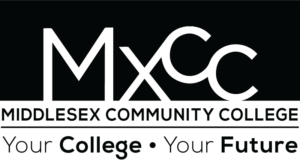
Middlesex Community College’s Academy of Health Professions (MCC) offers a nursing program during the day, at night, or on weekends. As recognized among the best nursing schools in Boston, Middlesex Community College also offers an LPN to RN option for those students who meet the program’s advanced placement requirements if space is available. Middlesex Community College’s nursing programs have received accreditation from the Accreditation Commission for Education in Nursing.
Middlesex Community College is a multiple campuses (Bedford & Lowell) two-year higher learning institution that serves nearly 12,500 students studying for credit degrees. Established in 1970 on what was once a VA hospital, MCC now offers more than 50 academic degree programs. Middlesex Community College is a member school of the AACC – the American Association of Community Colleges.
More: Middlesex Community College
20. Fisher College

Fisher College offers an RN to Bachelor of Science in Nursing (BSN) degree program that can be completed online and in only 1.5 years. Recognized among one of the best nursing schools in Boston, Fisher College’s RN to BSN program requires students to complete 120 credit units, of which 72 units are typically transferred at application. This RN to BSN degree program has received accreditation from the CCNE. Classes for this degree include nursing leadership, quantitative reasoning, social justice, and gender issues in American Society, and nursing research for evidence-based practice, among others.
Fisher College (Fisher) is a private higher education institution established in 1903 as a business college. The school operates multiple campuses in Boston, New Bedford, Brockton, and North Attleboro that serve approximately 1,450 students. During the mid-1940s, the college was divided into an all-men’s and an all-woman’s college, and the distance learning division was established in the late 1990s.

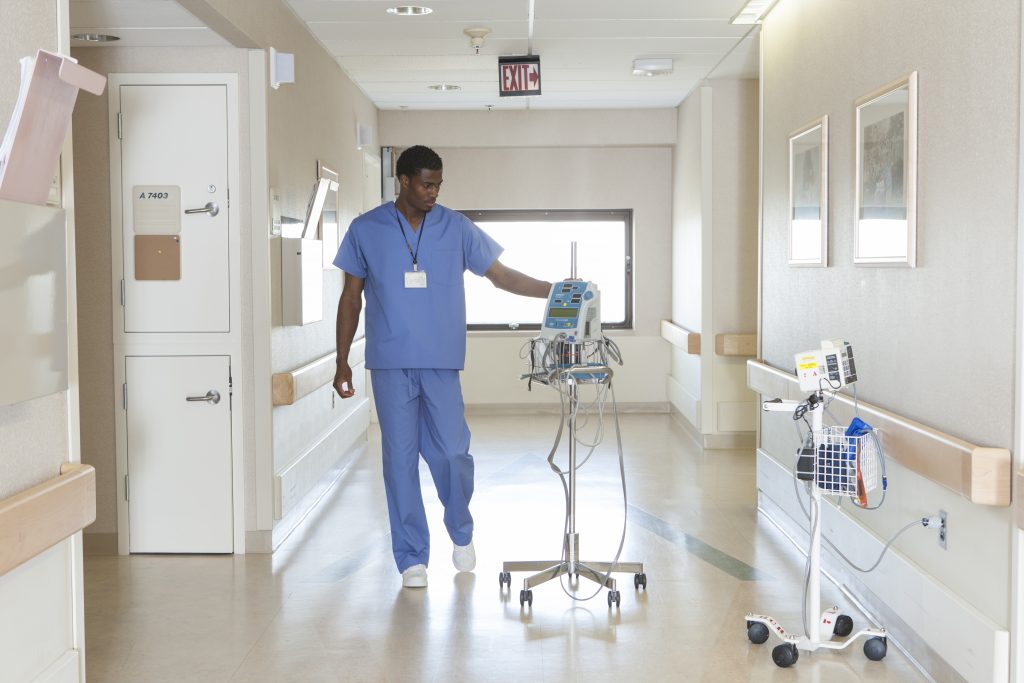

How’s the Market for Boston Nursing Jobs?
Even though the Massachusetts Board of Registration of Nursing (BORN) is not a member of the national nursing compact, the commonwealth boasts a total of more than 151,000 active nursing licenses (2018), with about 86% (130,000) of those nursing licenses awarded to Registered Nurses. The remaining Massachusetts nursing licenses at this level have been awarded as practical nursing licenses.
Many employers tasked with hiring Registered Nurses in the Boston area are, like other nursing professionals throughout the country, beginning to prefer to fill open Boston nursing jobs for Registered Nurse who has chosen to earn their Bachelor of Science in Nursing degree (BSN). In fact, it is a well-known nursing industry trend that nursing jobs in Boston and everywhere else in the United States are beginning to require more education. Applicants need to either hold a Bachelor of Science in Nursing (BSN) degree upon application or earn a BSN degree within a preset time limit to be eligible to keep their job as a Registered Nurse.
The job market for Boston nurse practitioner jobs and other nursing jobs in Boston is considered active. Since 2000, the number of active APRN and nurse practitioner jobs in Boston and Massachusetts has doubled to nearly 12,200 advanced practice registered nurse licensees.
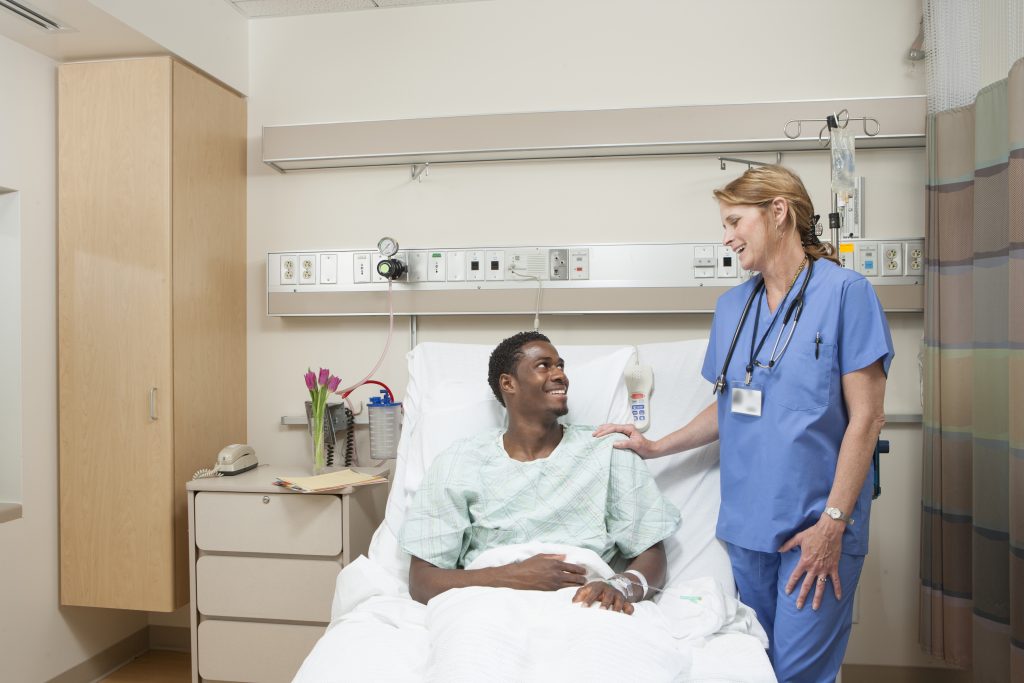


Hows Much Do Nurses in Boston Make?
According to the Bureau of Labor Statistics (BLS), the Commonwealth of Massachusetts is a top-paying state for nursing salaries. This area pays well for aspiring nurses just starting a nursing career and those already working in the nursing profession.
Boston Nurse Salary by Type
The BLS reports the national average salary for Licensed Practical Nurses (LPNs) is $48,070 and $77,600 for Registered Nurses. Additionally, the national annual wage for Nurse Anesthetists, Nurse Midwives, and Nurse Practitioners is $123,780 (BLS). Below are the salaries for the Boston metropolitan area showing nurses in Boston make more than the national average.
| Boston Nurse Roles | Annual Boston Salary |
|---|---|
| Licensed Practical Nurse (LPN) | $62,470 (BLS) |
| Registered Nurse (RN) | $99,950 (BLS) |
| Nurse Midwives | $129,720 (BLS) |
| Nurse Practitioners | $132,070 (BLS) |
| Nurse Anesthetists | $231,700 (BLS) |
According to Salary dot com, the median annual salary for Boston nurse practitioner jobs is $135,485 per year. And the range of salaries for nurse practitioner jobs in Boston is from $116,831 to $157,481 per year.
Boston is a Top Paying Metropolitan Area for Nurses
Additionally, the Bureau of Labor Statistics (BLS) combines the metropolitan area of Boston & Cambridge, Massachusetts, and Nashua, New Hampshire. This area is among the top five metropolitan areas in the United States with the highest level of employment for Registered Nurses. Additionally, the annual mean wage for RNs in this metro area is $99,950 per year.
| Top-Paying Metropolitan Areas | # of Nurses | Annual Salary |
|---|---|---|
| New York-Newark-Jersey City, NY-NJ-PA | 180,540 | $ 98,460 |
| Los Angeles-Long Beach-Anaheim, CA | 113,890 | $ 116,110 |
| Chicago-Naperville-Elgin, IL-IN-WI | 96,750 | $ 81,300 |
| Philadelphia-Camden-Wilmington, PA-NJ-DE-MD | 73,510 | $ 81,860 |
| Boston-Cambridge-Nashua, MA-NH | 66,120 | $ 99,950 |
Nurse Salary in Boston by Experience
It is noted that starting nursing salaries in Boston vary greatly, implying there is much room for growth and opportunity when examining available nursing salaries in Boston.
According to ZipRecruiter, entry-level Boston nursing salaries average approximately $70,399 per year. This translates to an hourly pay of $33.85. To provide some perspective on nursing salaries in Boston, it helps to review the percentile of earnings for each Boston nurse’s salary.
| Salary % for Nurses in Boston | Entry Level | Per Hour |
| 25% Percentile | $55,130 per year | $26.50 per hour |
| 50% Percentile | $70,399 per year | $33.85 per hour |
| 75% Percentile | $95,274 per year | $45.80 per hour |
| Top Earners | $133,812 per year | $64.33 per hour |
Similarly, Glassdoor.com notes that the median base pay (raw data that has not been adjusted for seasonality or inflation) for nursing salaries in Boston for 2020 was $79,563 per year, which shows a year-over-year increase of 1.6% (based on 3-month moving averages calculated using a proprietary algorithm.
Resources for Nurses in Boston
- Massachusetts Nursing Association (MNA)
- 10 Top Minority Nursing Scholarships
- Board of Registration in Nursing (Mass.gov)
Related:
- Nursing in Massachusetts
- Complete Job Description of a Registered Nurse
- Which States Offer the Cheapest RN to BSN Programs?
- Essential Guide to Nursing Licensure Compact (NLC)
- 15 Best Online RN to BSN Programs in Massachusetts
- Top 10 States in Most Need of Nurses
- 10 Highest Paying States For Registered Nurses
- Top 25 Highest-Paying Cities for Nurses
- 10 Best Nursing Schools in Chicago
